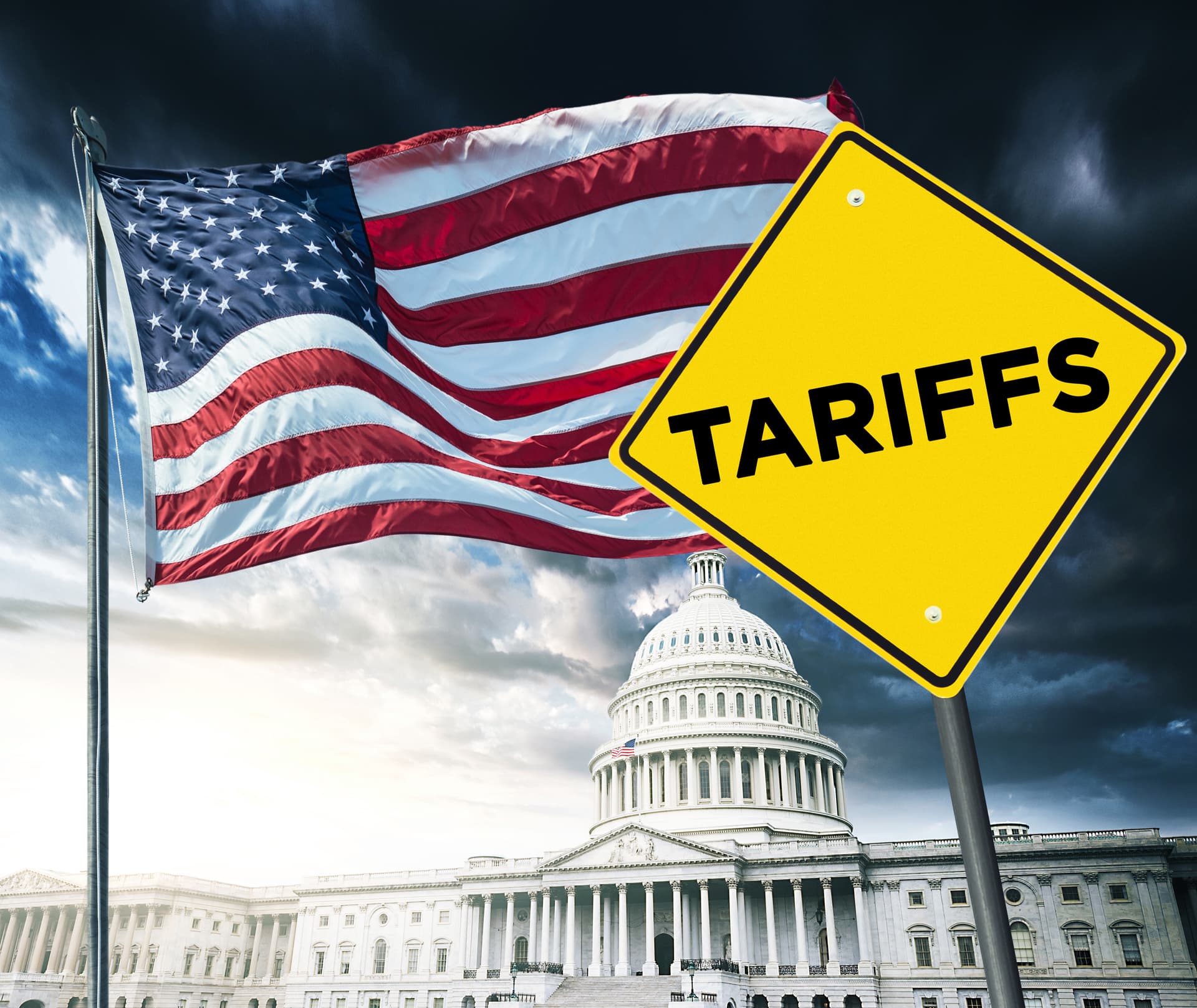Tariffs Are Back on the Menu: This Magnificent BlackRock ETF Could Help Protect Your Portfolio

News Summary
U.S. President Trump is once again threatening new tariffs on key trading partners, including a 100% tariff on Chinese imports and a 10% tariff on Canadian imports. This move aims to incentivize domestic manufacturing but risks increasing consumer prices and sparking global trade conflicts. In response to persistent trade tensions, the article recommends BlackRock's iShares U.S. Tech Independence Focused ETF (IETC) as a portfolio protection strategy. This ETF invests in American technology companies increasingly producing their products or intellectual property domestically, thereby reducing exposure to adverse trade policies. Its portfolio emphasizes software and services (40.6%) and semiconductors (25.7%), sectors either generally exempt from tariffs or specifically excluded by President Trump. IETC's top ten holdings include Broadcom, Palantir, Nvidia, Amazon, and Microsoft, many of which focus on digital services or have strong demand for AI data center chips. Since its inception in 2018, the ETF has delivered a compound annual return of 21.5%, significantly outperforming the S&P 500's 13.4% over the same period. Despite the fluidity of trade policy, the ETF is presented as a valuable addition to a diversified portfolio, expected to perform well even if other market segments struggle under tariffs.
Background
U.S. President Donald Trump, having secured re-election in the 2024 presidential race, has once again made his signature "America First" policies, particularly the use of tariffs to protect domestic industries, a central tenet of his administration. Tariffs, which are surcharges placed on imported goods, have been a key tool for the Trump administration to encourage companies to manufacture products domestically rather than overseas. During his first term (2018-2020), the Trump administration imposed significant tariffs on various countries, including China, leading to heightened global trade tensions and market volatility. The S&P 500 notably dropped by as much as 19% following initial tariff announcements. While some aggressive levies were later walked back, his protectionist stance remained. Entering 2025, renewed tariff threats, such as a 100% tariff on Chinese imports and a 10% tariff on Canadian imports, signal that Trump's trade policies will continue to have a profound impact on the global economy and corporate strategies.
In-Depth AI Insights
Beyond stated protectionist motives, what deeper strategic objectives might underpin the Trump administration's renewed tariff policies? - Tariff policies likely aim to accelerate the reshoring and "de-risking" of global supply chains, particularly in critical technology sectors, to reduce dependency on perceived rival nations. This extends beyond economic nationalism to become a tool of geopolitical leverage. - By escalating trade friction, the U.S. government may seek to compel allies to align with American standards on supply chain security and technology, thereby solidifying its leadership in the global tech ecosystem. - Tariffs also serve as a bargaining chip to secure more favorable bilateral trade agreements or gain an advantage on broader geopolitical issues, with the economic costs viewed as a necessary price for achieving these strategic goals. What are the long-term effectiveness and potential limitations of "tariff-resistant" investment strategies, such as the iShares U.S. Tech Independence ETF, in a volatile trade environment? - While apparent "tariff-resistant" features (e.g., software services, domestic production) may offer short-term protection, especially against direct tariff hits, the interconnected nature of the global economy means that tariff-induced overall economic slowdowns or reduced consumer demand can indirectly impact all sectors, including protected tech companies. - The dynamic nature of trade policy implies that exempt or tariff-free sectors/products are not static. Governments may re-evaluate critical industries, leading to policy adjustments that nullify existing "tariff-resistant" investment theses. - Such a strategy, by concentrating heavily on specific sectors and domestic markets, might sacrifice diversification and global growth opportunities. Investors should be wary of potential overvaluation risks from "crowding" and the possibility that these stocks could lose their premium if trade policies shift or global economic conditions improve. Beyond immediate market volatility, how will tariff policies shape long-term corporate investment decisions and operating models for global businesses? - Tariff policies will accelerate the regionalization and localization of corporate supply chains. To mitigate tariff risks and enhance supply chain resilience, companies will increasingly favor production investments near consumption markets or in politically more stable regions, rather than solely pursuing the lowest cost areas. - Investment decisions will increasingly incorporate geopolitical risk premiums. Beyond traditional factors, companies will prioritize a country's trade policy stability, its relationship with major markets, and potential sanction risks when selecting investment locations. - Technology investments will shift towards automation and intelligent manufacturing. To offset potential rises in domestic labor costs, companies will boost spending on industrial automation, AI-driven manufacturing, and other technologies to make "reshoring" economically viable.